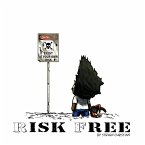Man has long had the power to take life, but what will happen when he learns to give it? Intrigued by this question, young Victor Frankenstein - a devoted student of science - becomes obsessed with the idea of conjuring life out of 'lifeless matter'. Using his formidable skills in chemistry and other sciences, Victor begins to assemble a being from scavenged and stolen body parts. Once he has fathered a son created by his own science, Victor rejects the hideous creature he has brought to life. Eventually, the creature mounts a campaign of revenge against his creator, struggling to be recognised as a thinking, feeling being. And so begins the battle between father and son... First published anonymously in 1818, Frankenstein was the brainchild of author Mary Shelley. Over the years, this classic tale has been retold many times in several different formats. Campfire's faithful graphic novel adaptation of Frankenstein brings an important and timeless story back to life.
Hinweis: Dieser Artikel kann nur an eine deutsche Lieferadresse ausgeliefert werden.
Hinweis: Dieser Artikel kann nur an eine deutsche Lieferadresse ausgeliefert werden.








